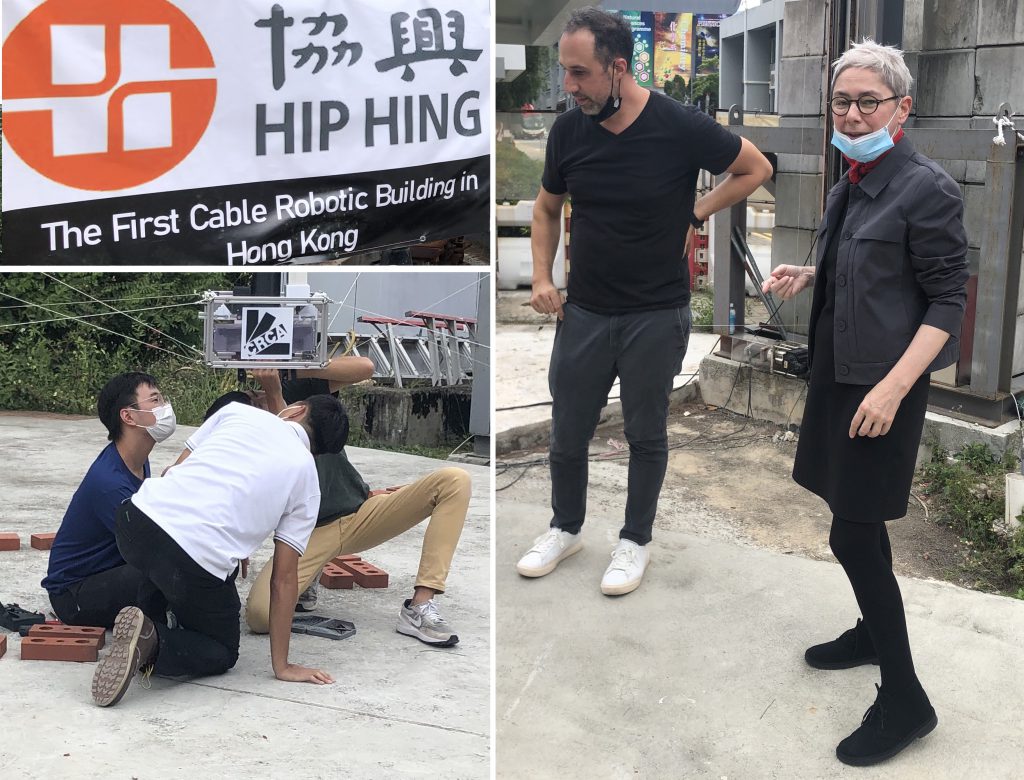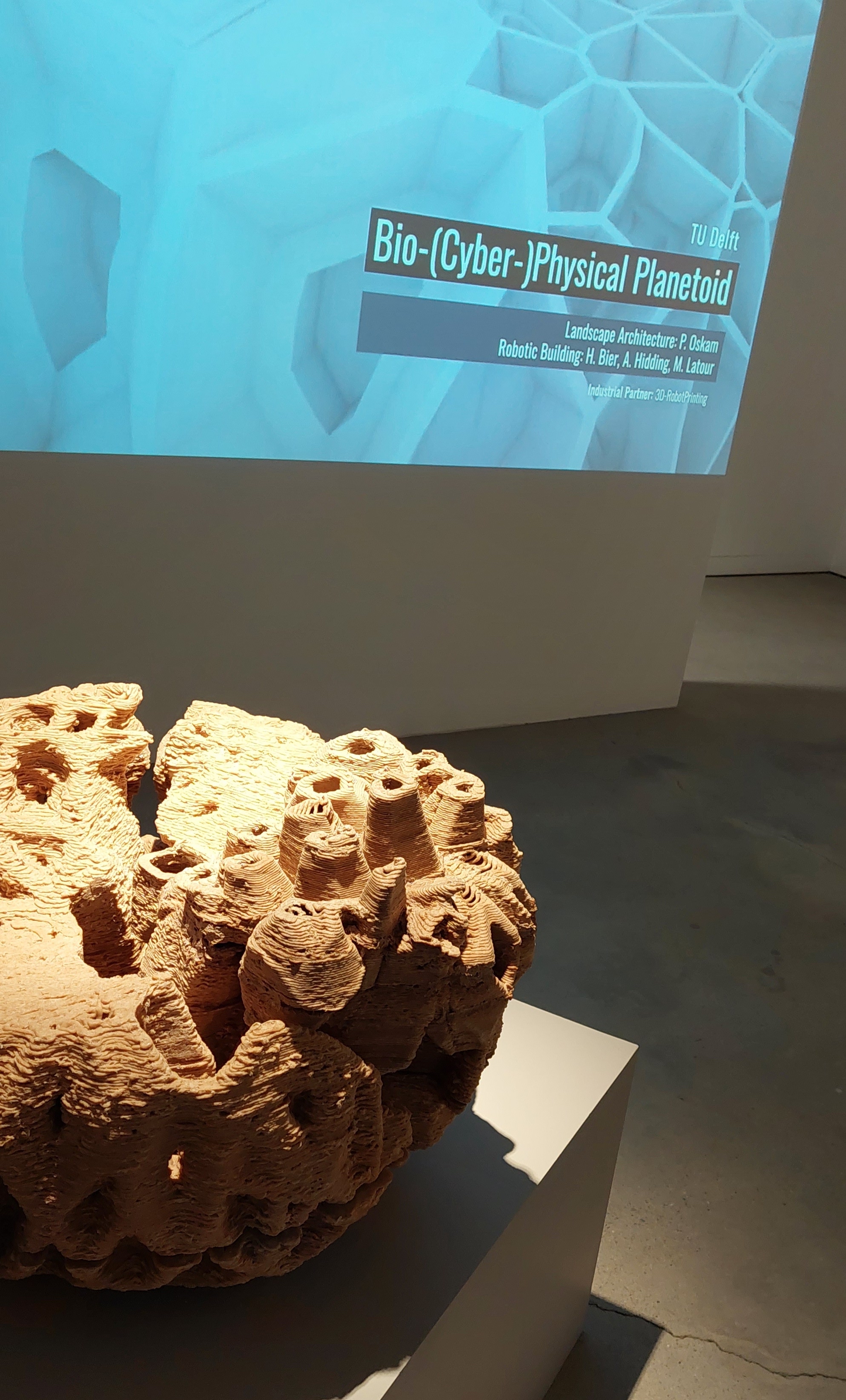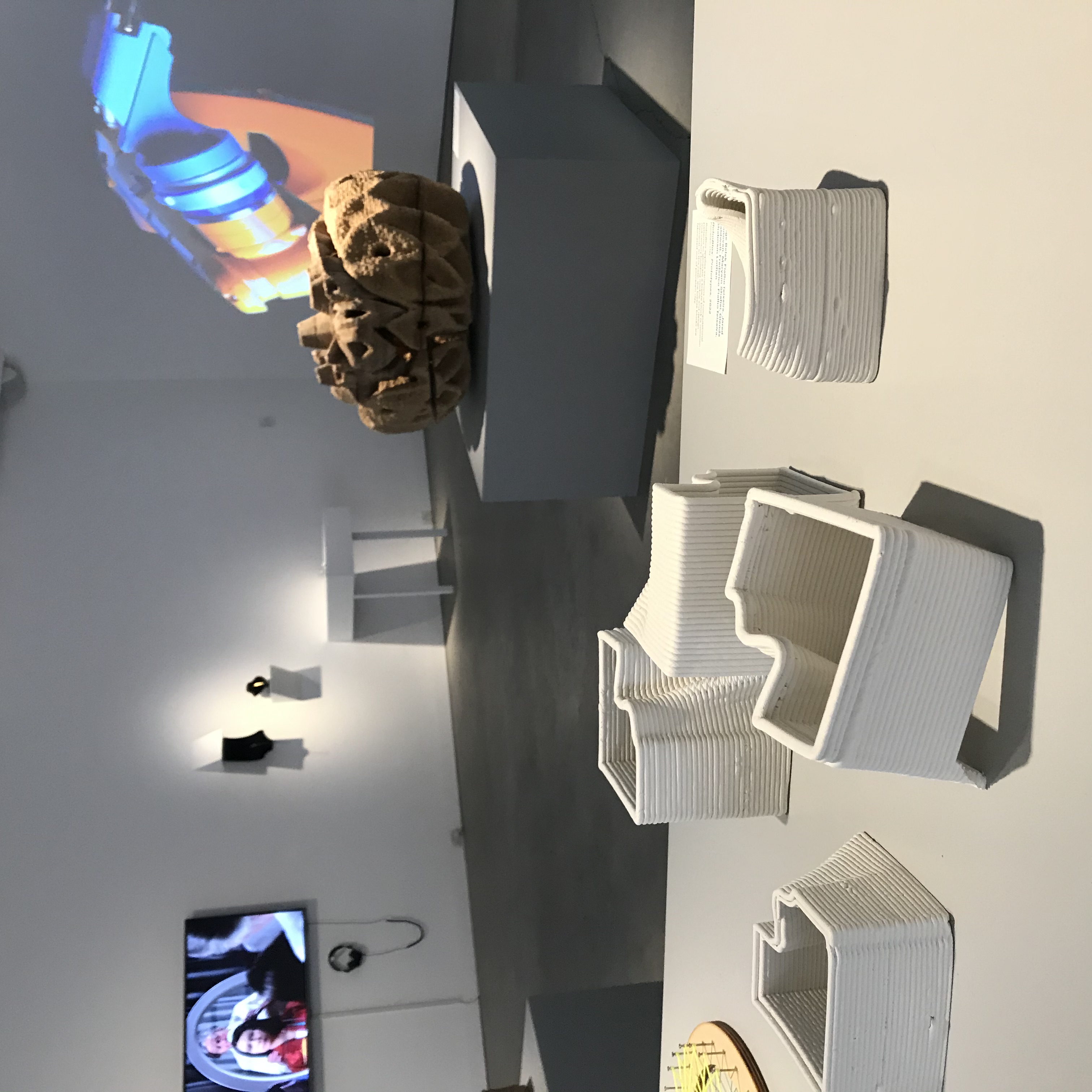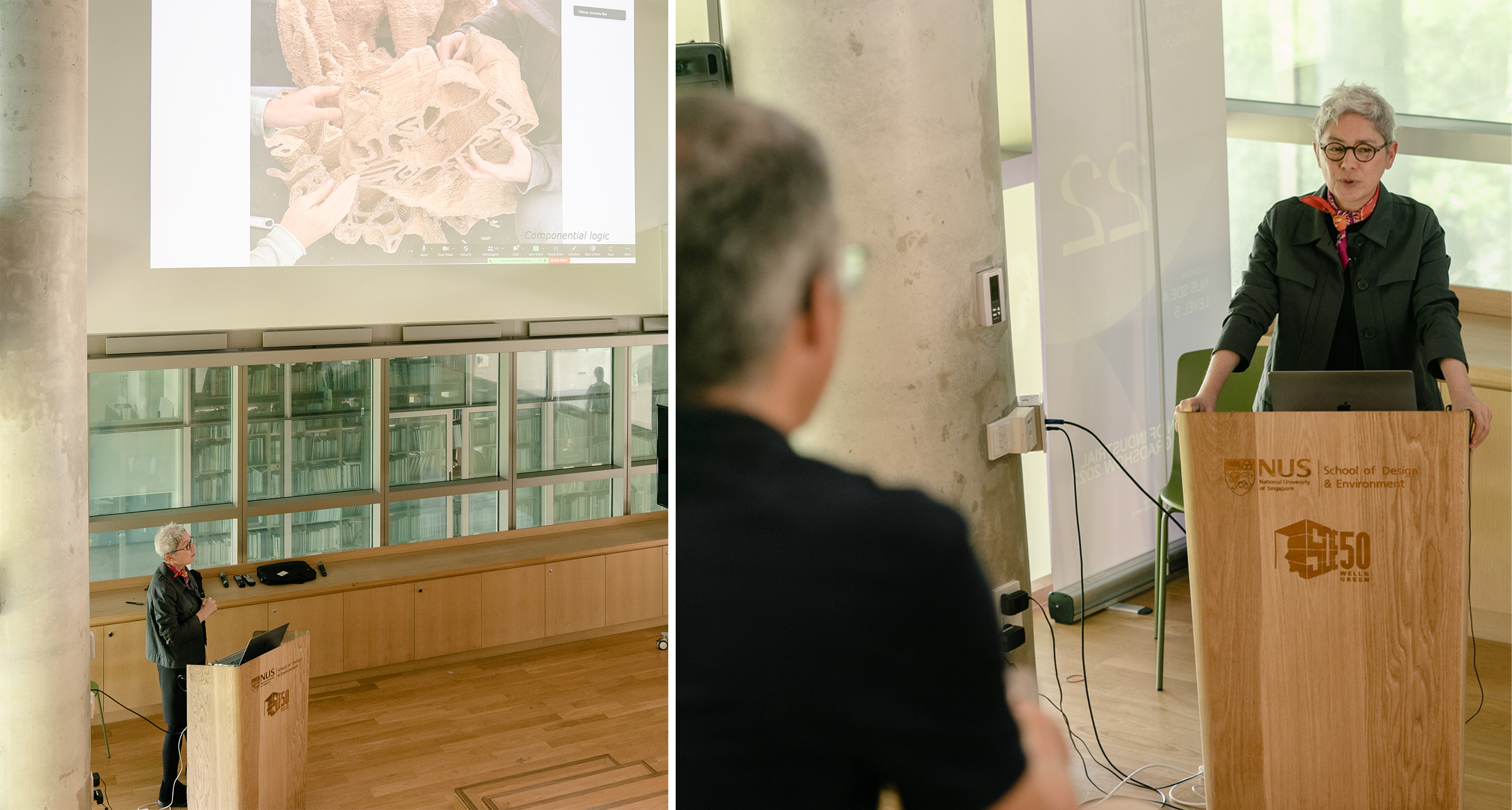EVENTS
Asia-Australia Tour 2022
15-30th October Asia-Australia tour involving activities such as lecturing, reviewing PhD research, and exhibiting at various institutions such as the Chinese University of Hong Kong (CUHK), Royal Melbourne Institute of Technology (RMIT), University of Sydney (USYD), and National University of Singapore (NUS). The tour has been sponsored by the Dutch Embassy in Sydney, Delft Robotics Institute, RMIT, USYD, CUHK, and NUS.
Research meeting at the ‘cable robotic building’ site at CUHK and lecture
Both, lecture and research meeting focused on challenges of Advancing Cyber-physical Architecture with the understanding that architecture is imbued with cyber-physical systems. Its design to production and operation process requires a trans-/ multidisciplinary approach involving various disciplines such as architecture, robotics, computer and material science. The Robotic Building lab at TU Delft advances a trans-/ multidisciplinary Design-to-Robotic-Production-Assembly and -Operation by numerical and experimental studies that aim to accelerate digital transformation as well as address societal challenges such as overpopulation, rapid urban densification, and climate change.
Practice Research Symposium at RMIT in Melbourne
PhD reviews at the Practice Research Symposium, RMIT for theses on Mixed Reality Fabrication by Gwyllim JAHN and High Resolution Combinatorics of Space by Joshua Lye.
‘BCP Planetoid’ exhibited at the SHErobots event in the Thin Sheds Gallery in Sydney with support of the Dutch Embassy in Sydney and Delft Robotics Institute
The exhibition is the first of its kind in Australia and provides a platform for engagement with ongoing research and creative practice in contemporary robotics from a female perspective. It charts and builds upon a history of expert research and output of women pioneering work in robotics, drawn from a global cross-disciplinary network situated throughout Europe, Japan, Canada, USA and Australia. The exhibition will showcase large-scale industrial robots, moving machines, interactive AI artworks and performances, archival material, art and documentary films, and creative objects fabricated live by robots.
Furthermore, ‘artists’ talk’ presenting the conceptual development of research implemented in the Robotic Building Lab. This involves exploring process and results of that process through amongst others the ‘Bio-cyber-physical Planetoid’ as featured in the exhibition 'SHErobots', which “brings together iconic and emerging examples of robotic ‘tool, toy, companion’. As a tool, robots have a rich history in architectural fabrication, including material explorations and new construction techniques; Henriette Bier (NL) creates robotically fabricated, bio-cyber-physical pods that support sustainability of more-than-human species. Toy foregrounds feminist critiques of gender and cultural stereotypes through conceptual re-imaginings of robots; artist Elena Knox’s (JN) ‘Gynoid Survival Kit’ poses troubling issues of power, agency and personal safety embedded in the making of gynoid robots. While companions is exemplified by media artist Mari Velonaki’s (AU) pioneering social robotics artwork ‘Fish-Bird’, which portrays two robotic agents engaged in a poetic dialogue with the audience they encounter, created and first shown at The University of Sydney 20 years ago.”
Lecture at NU Singapore and research meeting addressing challenges of setting up a new robotic lab at NUS
Both, lecture and research meeting addressed Advancing Robotics in Architecture with the understanding that while half of all architecture-related tasks can be fully automated the other half relies to a certain degree on human support. These tasks range from architectural design to building construction and operation. Their implementation requires a trans-/ multidisciplinary approach involving various disciplines such as architecture, robotics, computer and material science. The Robotic Building lab at TU Delft advances a trans-/ multidisciplinary Design-to-Robotic-Production-Assembly and -Operation by numerical and experimental studies that aim to accelerate digital transformation as well as address societal challenges such as scarcity, climate change, and overpopulation.



